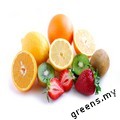No products
Product successfully added to your shopping cart
There are 0 items in your cart. There is 1 item in your cart.
Categories
- Baby & Kids
- Baby Milk Powder
- Baby Diapers
- Beverage & Cereal
- Biogreen
- Book
- Chinese Herbs
- Seasonings
- Honey
- Household
- Noodles & Pasta
- Nuts & Seeds
- Oil
- Personal Care
- Pulses & Beans
- Rice
- Special Pack
- Sugar & Molasses
- Supplements
- Wholefood Nutrition
- New Products
- Liquid Wellness
- Shabondama
- Korea Red Ginseng
What is Organic Food ?
-Organic Food is food raised without chemical fertilizers (eg: urea, potassium sulfate, super phosphate), chemical pesticides, fungicides, herbicides, hormones or antibiotics, which cause pollution or are known to be harmful to health.
-Organic food is processed and distributed with method that retains freshness and nutritional quality without the use of the synthetic ripening agents, fumigants, preservatives or irradiation.
-Organic production methods are generally not as suited to mass food production. As a result, organic food is usually more expensive.
Why buy Organic Food ?
1. Reduce The Toxic Load
Organic produce is free from pesticides, fungicides and other harmful chemicals. It is save to be eaten.
Studies show that pesticides can adversely affect the nervous system, increase the risk of cancer and decrease fertility. 
2. Save Our Children
On the average, a child receives 4 times more exposure than an adult to at least 8 widely used cancer-causing pesticides in food.
The food choice you make now will impact your child's health in the future.
3. Restoration of Natural Ecosystem
Since organic farming does not contaminate the soil with synthetic chemicals, it restores the natural ecosystem.

4. Protect Water Quality
Organic farming ensures that our water supplies are not polluted with farm chemicals.
5. Save Energy
More energy is now used to produce synthetic fertilisers.
Organic farming reduces the need to produce, transport and dispose of dangerous chemicals.

6. Improved Lifestyle and Value Systems
Organic farming requires its practitioners to respect nature and conserve all environment resources, thus improved lifestyles and value systems.
7. Maintain Optimum Nutrition
Researchers at Rutgers University reported that non-organic produce has as little of 25% of minerals content compared to organic produce.
8. Taste Better 
9. Support A True Economy
Although organic foods slight seem more expensive than conventional food.
Conventional food prices do not reflect the hidden costs such as pesticide regulation and testing, hazardous waste disposal and clean-up, health and environment damages.
10. Promote Biodiversity
Mono cropping is the practice of planting large plots of land with the same crop year after.
While this approach tripled farm production between 1950 and 1970, the lack of natural diversity of plant life has left the soil lacking in natural minerals and nutrients.
To replace the nutrients chemical fertiliser are used often in increasing amount.
Single crops are also much more susceptible to pests, making farmers more reliant on pesticides.
Despite a ten-fold increase in the use of pesticides between 1947 and 1974, crop losses due to insects have doubled- partly because some insects have become genetically resistant to certain pesticides.
![]() Top
Top
